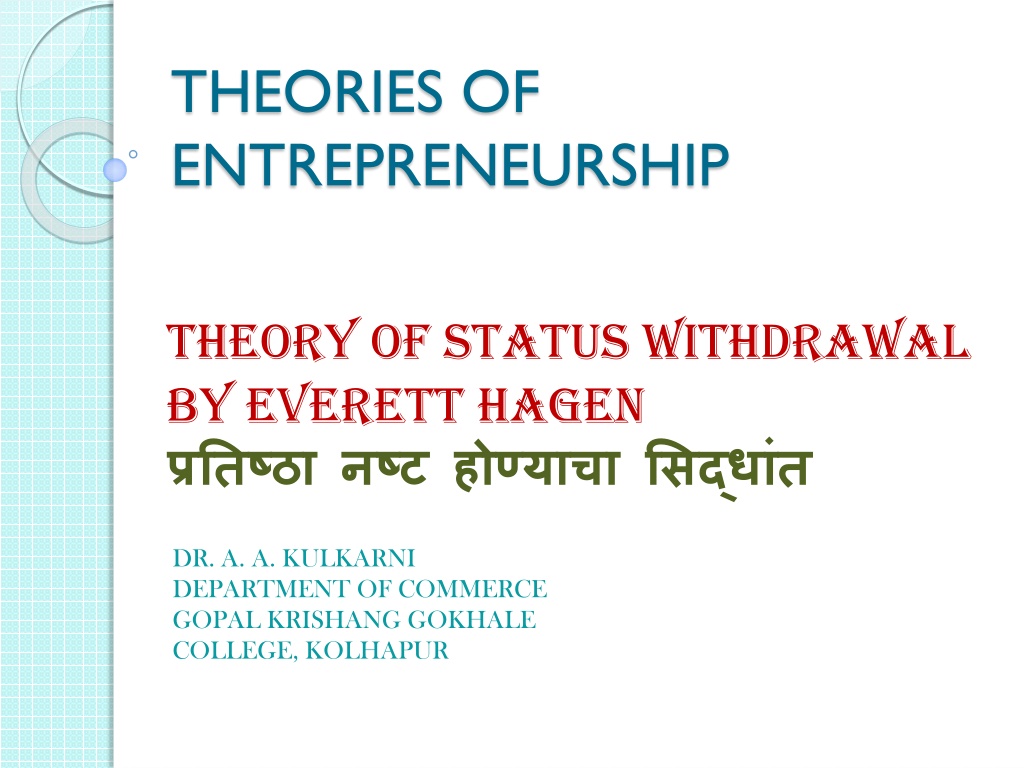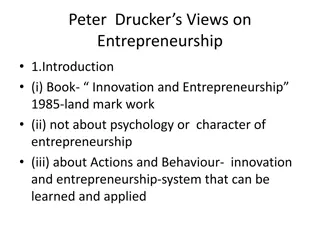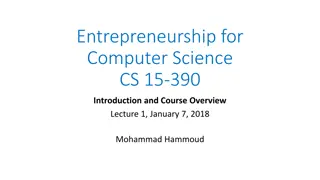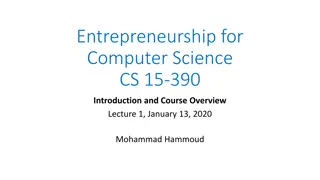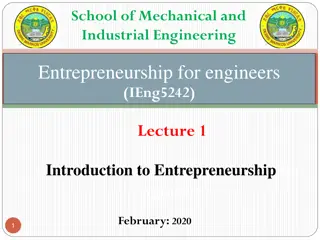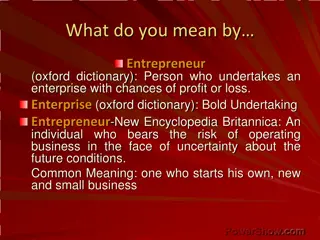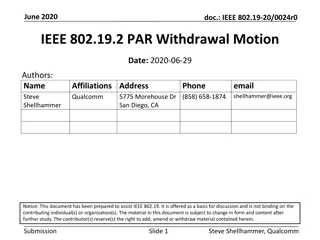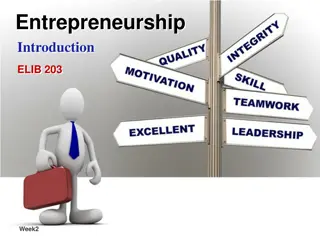Theory of Status Withdrawal in Entrepreneurship by Everett Hagen
Theory of Status Withdrawal in Entrepreneurship by Everett Hagen explores how individuals in a social group may experience status withdrawal when their values are not respected by other groups. Hagen identifies triggers and reactions to status withdrawal, showcasing examples like the samurai community in Japan. The theory highlights four possible entrepreneur reactions - Retreatist, Ritualist, Reformist, and Innovator, with Indian examples such as the Jains, Marwadi, Sindhi, and Parsi communities.
Download Presentation

Please find below an Image/Link to download the presentation.
The content on the website is provided AS IS for your information and personal use only. It may not be sold, licensed, or shared on other websites without obtaining consent from the author. Download presentation by click this link. If you encounter any issues during the download, it is possible that the publisher has removed the file from their server.
E N D
Presentation Transcript
THEORIES OF ENTREPRENEURSHIP Theory of Status Withdrawal By Everett Hagen DR. A. A. KULKARNI DEPARTMENT OF COMMERCE GOPAL KRISHANG GOKHALE COLLEGE, KOLHAPUR
Status withdrawal in the perception on the part of the members of some social group that their purposes and values in life are not respected by groups in the society whom they respect and whose esteem they value
Hagen postulates the fur types of events can produce status withdrawal: Displacement by force, e.g., the Norman invasion of England or the derogation of merchants, samurai, and wealthy peasants in seventeenth- century Tokugawa Japan; Denigration of valued symbols, e.g., suppression of religious sets in seventeenth-century Russia and England; Inconsistency of status symbols with a changing distribution of economic power Nonacceptunce of expected status on migration to a new society e. g, the Amioquents in seventeenth- century Colombia.
FOUR POSSIBLE REACTIONS (a)Retreatist: Entrepreneur who continues to work in society but remains indifferent to his work or status. (b)Ritualist: One who works as per the norms in the society hut with no hope of improvement in the working conditions or his status. (c)Reformist: One who is a rebellion and tries to bring in new ways of working and new society. (d)Innovator: An entrepreneur who is creative and try to achieve his goals set by himself.
He developed this thesis from the case of the samurai community of Japan Traditionally, this community had enjoyed a high status of which it was deprived later. To regain this lost prestige, it became more active and vigorous and gave rise to many entrepreneurs.
INDIAN EXAMPLES: Jains could be successful entrepreneurs because of their consciousness of their majority and superiority complexes. Marwadi Community: Displaced from their own land Sindhi community: displaced Parsi community: displaced and spread all over the old Brahmin community
